Introducing NNI’s 2024 Tribal Professional Cohort, the Largest Program Cohort to Date
NNI’s Tribal and Direct Services team selected 11 tribal professionals from across the United States to serve in its year-long professional development program.
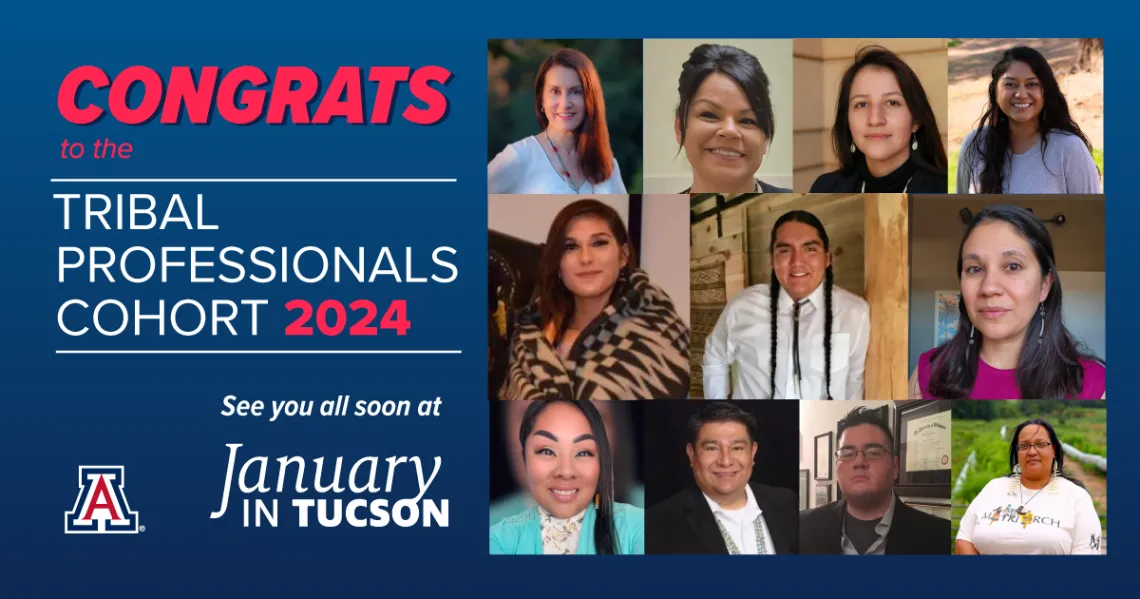
The Native Nations Institute’s (NNI) Tribal and Direct Services (TDS) team is thrilled to welcome 11 new members to its Tribal Professionals Cohort for 2024!
The Tribal Professionals Cohort (TPC) began in 2016 as an effort to directly respond to the realities and challenges facing Tribal Professionals that serve Native communities while maximizing available opportunities for those individuals to better serve their communities.
Each year, the TDS team selects a handful of individual applicants to serve in a year-long commitment as part of the Cohort for that year. Members of the TPC are granted a registration waiver to attend up to three accelerated Masters-level courses during NNI’s annual January in Tucson event, a program of the Indigenous Governance Program, which is held in partnership with the James E. Rogers College of Law.
Members also participate in quarterly seminars and other networking events with NNI faculty and staff throughout the year to help them find creative solutions to the most pressing issues in Indigenous governance.
To be eligible to participate in the TPC program, applicants must be a citizen of a U.S. Native nation and express an interest in learning more about Indigenous governance. Preference is given to current tribal government practitioners, community leaders, and individuals who can demonstrate their ability to use the information they learn to benefit their tribal communities.
This year’s Cohort includes 11 professionals representing 11 different Native nations with interests and expertise in the areas of energy and natural resources policy, Federal Indian law, education, information sciences and communications, community activism and more.
Read on to meet the 2024 Cohort!
Simone Auger (Confederated Tribes of Grande Ronde)
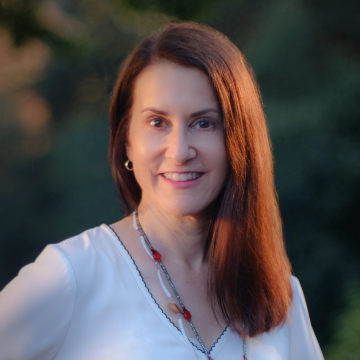
Simone Auger is an enrolled member of the Confederated Tribes of Grande Ronde who works as a policy advisor in Washington, D.C. She has over 13 years of experience in energy, natural resources management and tribal affairs, which she puts to use as a legislative assistant in the U.S. House of Representatives. Auger previously served as a Mark O. Hatfield Congressional Fellow and as a lead advisor on Diversity, Equity and Inclusion programs for underinvested communities and as a tribal outreach liaison working with the Energy Trust of Oregon. She currently serves on the Grande Ronde Housing Grievance Board, TERO Commission and on the board of directors at the Competency and Credentialing Institute. Auger received a Master’s of Interior Architecture from the University of Oregon School of Architecture and Environment.
Kelly Berry (Apache Tribe of Oklahoma)
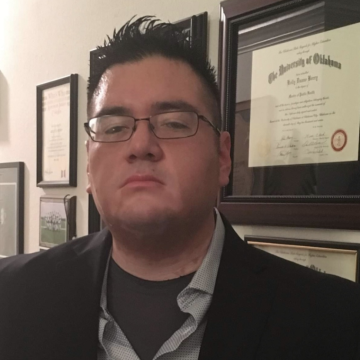
Kelly Berry is an enrolled citizen of the Apache Tribe of Oklahoma and has affiliations with the Kiowa, Cheyenne, and Choctaw Nations. Berry is employed as the Indigenous Initiatives Research Associate in K-State’s College of Education where he is a co-instructor for the newly constructed Indigenous Educational Leadership Certificate Graduate Program. He also serves as adjunct faculty at Upper Iowa University and recently served as faculty at Riverside Indian School in Anadarko, Oklahoma. He is also a third-year doctoral student of Educational Leadership at Kansas State University (K-State) and is a UCEA Barbara L. Jackson Scholar. Berry is the former acting director of the Comanche Nation Higher Education Department, is a leadership fellow of Harvard University’s Graduate School of Education Management Development Program and completed Harvard University’s Graduate School of Education Instructional Moves: Making Classroom Discussions More Inclusive and Effective Professional Development program. Berry graduated with a Master’s of Public Health in Preparedness and Terrorism Response from the University of Oklahoma Health Sciences Center in 2007.
Crystal Cavalier-Keck (Saponi Nation)
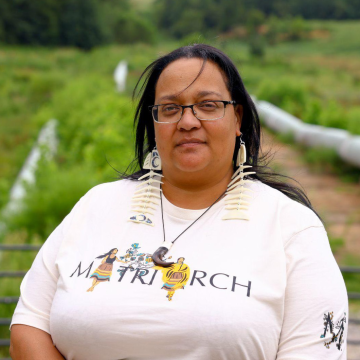
Dr. Crystal Cavalier-Keck is a citizen of the Occaneechi Band of the Saponi Nation and is CEO and co-founder of 7 Directions of Service with her husband. She is an Adjunct Professor in the Social Sciences department at Salem College in Winston Salem, N.C. Cavalier-Keck has dedicated the past five-plus years to defending her homelands against the Mountain Valley Pipeline/Southgate Extension. She is leading a campaign to bring Rights of Nature laws to North Carolina to protect the waterways and communities in the pipeline's path. Cavalier-Keck completed her Doctorate at the University of Dayton, focusing on the social justice crisis of Missing Murdered Indigenous Women (MMIW) tied to gas/oil pipelines. This led her to launch the MMIW Coalition of North Carolina. She also co-authored N.C. House Bill 795, the Rights of Nature/Rights of the Haw River, prioritizing environmentally impacted communities around the watershed. Crystal founded and is currently the President of the Native American Caucus of the N.C. Democratic Party. Crystal serves on the boards of Movement Rights and the Haw River Assembly.
Damon Clark (Navajo/Diné)
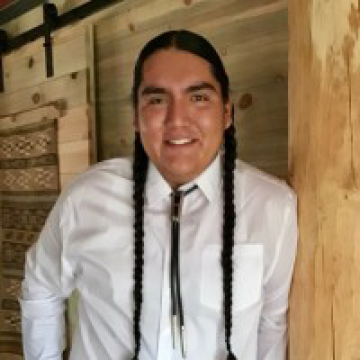
Damon J. Clark is a Policy Analyst with the Office of Navajo Government Development for the Navajo Nation Government. He previously served as a Confidential Assistant at the White House Office of Management & Budget and as a Digital Organizing Associate for the Democratic Coordinated Campaign with Mission for Arizona. During the summer of 2020, Clark was a freshman literature teacher and summer counselor with Upward Bound, a federal program for first-generation and low-income students. From 2018-19, Clark helped build an off-grid log cabin for his family on the Navajo Reservation. After graduating from Harvard College in 2017 with a concentration in Social Studies, Clark was awarded a Trustman Postgraduate Traveling Fellowship and spent a year in New Zealand and Australia visiting Indigenous communities.
Deedra Dallas (Salt River Pima-Maricopa Indian Community)
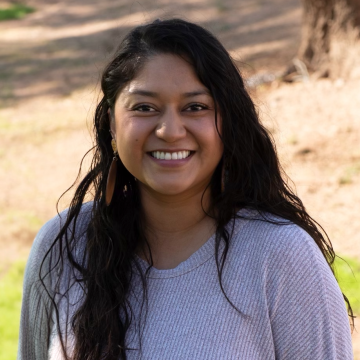
Deedra Dallas was raised in Kykotsmovi Village on the Hopi Reservation in northeastern Arizona. She currently resides in Scottsdale, Arizona where she serves as a Communications and Marketing Specialist for the Salt River Pima-Maricopa Indian Community (SRPMIC). She is a citizen of SRPMIC and affiliated with the Hopi Tribe. Dallas received her Master's degree in Library and Information Science from UArizona. As a communications and information science specialist, Dallas aims to advocate for the proper and careful handling of Indigenous knowledge while advocating for Indigenous voices in communications and promoting the importance of access to information. She believes that it is essential to ensure that Indigenous voices are at the forefront of decision-making and Indigenous intellectual property management, and that access to information for tribal communities involves providing information that correctly represents Indigenous narratives and ensures that communication and marketing tools are culturally relevant.
Megan Gourd (Gidutikad Band of Northern Paiute)
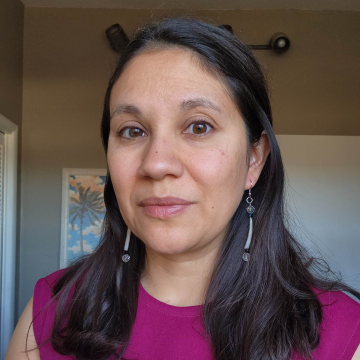
Megan Gourd lives in Tahlequah, Oklahoma with her husband and their six children. For the last three years, she has served as a council member for her tribe, the Gidutikad Band of Northern Paiute, which is known to colonial governments as the Fort Bidwell Indian Community. Gourd is also a descendant of the Blackfeet Nation. She currently serves as the Vice-Chair for her tribe and as a Tribal Outreach Liaison for the Tribal Resource Center, a non-profit that works in digital equity. Through the Tribal Resource Center, Gourd has been able to work with another non-profit organization that offers hands-on workshops in broadband and wireless infrastructure for Tribal Nations. She sees herself as a community advocate and has worked hard to listen and learn so that she can serve Indigenous communities. Gourd is working on learning, not only about the sovereign rights of Indigenous Peoples, but also about reclaiming Native language and culture for the rights holders of those cultural resources.
Chloe Gunville (Mnicoujou Lakota)
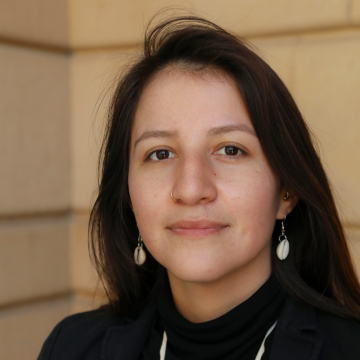
Chloe Gunville’s Lakota name is Cetan Ska Sunka Wakan Win (White Hawk Horse Woman). She is Mnicoujou Lakota and was born and raised on the Cheyenne River Reservation. She is motivated by her lived experiences as a Queer Indigenous woman growing up and currently living on the Cheyenne River Lakota Nation Reservation. Gunville is proud of having been raised by her Unci (grandmother), which has heavily influenced the direction of her life in education. She is the oldest daughter of six siblings and a descendant of the Wounded-Knee Survivors of the High Hawk family. The Gunville side of her family are rodeo stock contractors, so Gunville has grown up around the horse nation her entire life. As a former college basketball player, Gunville is very involved in K-12 sports events on the reservation and takes pride in the community-wide cultural events that are hosted on her family’s ranch every summer. Gunville graduated from Haskell Indian Nations University with a Bachelor’s of Arts in Indigenous and American Indian Studies. Then in 2022, earned her Master’s of Education and Social Policy from the University of Kansas. She currently works as the Legislative Specialist for the Cheyenne River Sioux Tribe’s Office of Council Representatives.
Terri Honani (Hopi & Tewa)
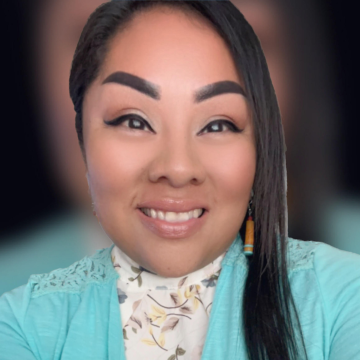
Terri Honani’s Hopi name is Pamösmana (Fog Girl). She is half Hopi and half Tewa and is Tobacco Clan from the Village of Tewa, which is a village of the Hopi Tribe. She currently works as the Executive Advisor for Chairman Nuvangyaoma of the Hopi Tribe. Honani is an alumna of Arizona State University where she received her Bachelor’s Degree in Science in Exercise & Wellness Health Promotions. She is a fourth-generation rancher and enjoys being outdoors and learning about her Hopi homelands and natural resources. Professionally, Honani wants to work in natural resources to utilize and protect her tribes’ land, animals and water in a sustainable and regenerative way.
Jose Vince Lujan (Taos Pueblo)
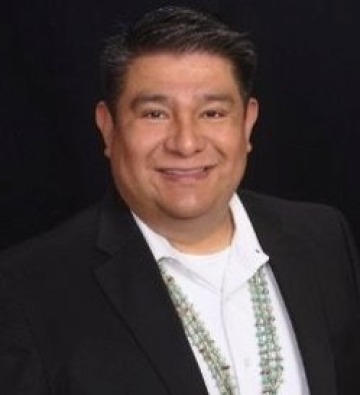
With more than 20 years of experience in Federal Indian Law, Vince Lujan provides advice and counsel to Indian Tribes and tribal organizations. An enrolled member of Taos Pueblo with descendancy from Tesuque Pueblo, Lujan holds undergraduate degrees from the University of New Mexico and graduate degrees from Arizona State University. He is admitted to practice law in Arizona, New Mexico, and the federal district courts of these states. Before joining Titla & Parsi, PLLC, Lujan served for more than ten years as President and Chief Executive Officer for Salt River Devco, an enterprise of the Salt River Pima-Maricopa Indian Community. Under his leadership, Salt River Devco self-developed the first Courtyard by Marriott and Residence Inn by Marriott on allotted tribal lands. His team helped bring McKesson Corporation, a Forbes Fortune 10 Company, and Harkins Corporation, one of the largest companies in Arizona, to the Community under 99-year ground leases. His team was also instrumental in securing letters of intent from auto dealerships during pre-development of the successful Scottsdale Auto Show. Prior to his position at Salt River Devco, Lujan served as Senior Counsel for the Salt River Pima-Maricopa Indian Community.
Michelle Van Dyke (Gwichyaa Zhee Gwich’in Tribal Government)
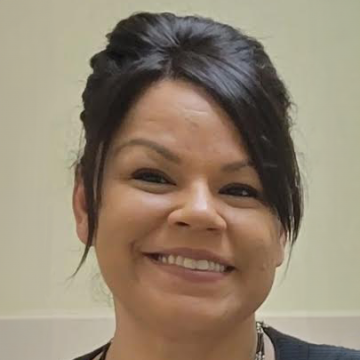
Born and raised in Alaska, Michelle Van Dyke is a Gwich’in and Inupiaq woman from Fort Yukon. She was raised by her parents; a boarding school survivor and a survivor of severe family violence. Growing up in a small community based around Government and State funding, Van Dyke gravitated toward a career in non-profit organization. Currently, she serves as a Victim Service Provider for the Gwichyaa Zhee Gwich’in Tribal Government, where she and her four daughters are enrolled tribal members. Van Dyke built her current home with her father and it is there that you can often find her working on a project, tinkering outside or watching true crime documentaries. Since putting her educational goals on hold for the sake of her daughters’ individual success, Van Dyke is now able to focus on her passion to become a better servant for her people. With her oldest daughter having graduated high school this past spring and her twins following suit in two years, Van Dyke intends to bring her youngest daughter (who she calls her “adventure baby”) along on her upcoming educational endeavors, including her trip to UArizona to participate in January in Tucson.
Fawn Weaver (White Earth Nation)
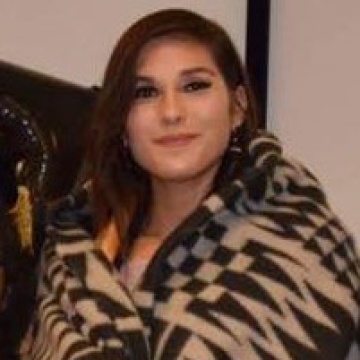
Fawn Weaver is a member of The White Earth Nation. She was born and raised in southern California and made the choice to move to the White Earth Reservation in northern Minnesota five years ago to raise her family in her ancestral culture. There, Weaver says, life is very fortifying. The woodland they live in is sustainable and sacred, but she says that she has identified a number of needs in her community in her time there. Weaver found the TPC while looking for programs to continue her education so that she can become the person her people need to lead them from the adversities they face in their daily lives on Gaa-waabaabiganikaag. Weaver was the first person in her family to attend college. She earned her Bachelor’s degree in Communications from California State Polytechnic University Pomona. She says that this educational experience brought its own set of unexpected challenges, but that she has improved vision and discipline now and is ready to continue her education so she might help her people to better their circumstances.

